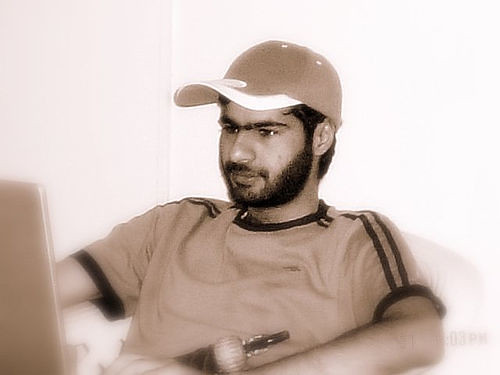When a secret report incriminating the Bahraini government leaked out to the media, newspapers were too worried to publish it. They turned, instead, to a young blogger to make the information public.
At 30, Ali Abdulemam, a computer engineer, runs Bahrainonline.org, which is considered the largest online town hall for Bahraini activists and bloggers.
“Blogging has allowed us as Bahrainis to breathe some fresh air. As a blogger, you feel that you are helping your country,” he said in an interview with the Los Angeles Times during a gathering for Arab bloggers organized in Beirut last weekend by a German organization, the Heinrich Böll Foundation.
Abdulemam comes from a Shiite Muslim family that opposes the Sunni-dominated monarchy in Bahrain. Some of his relatives have been jailed for political activism. He was also arrested in 2005 and held for 17 days on charges of insulting the king because of a posting criticizing the royal family that appeared on his website.
The idea of creating a blog came to him when he was 20, at a time when Bahrain was, what he called, an “oppressive” state run by the security services.
“I wanted to create a website where people inside and outside Bahrain could communicate and exchange information,” he said. “There was too little information in the media.”
In the beginning, four people registered on his website; the number has now grown to 50,000 registered members.
Abdulemam said that today, with more than a 150,000 hits daily, his online gathering place has become an open space for criticizing government policies and tackling Bahrain social and political problems. The forum was also posting opposition press releases and keeping track of opposition figures jailed.
Since the local media is tightly controlled by political authorities, many people resort to informal websites to seek uncensored information, he said.
“People are seeing the mistakes of the government and they want to freely discuss them,” Abdulemam said. “Blogs are very effective because the society is highly politicized and a lot of people are Internet users.”
But there is the other side of the coin. As tension mounts between Sunni and Shiite Muslims in his tiny Persian Gulf Kingdom governed by the Sunni minority, a flurry of uncontrolled websites are being used to spread sectarian hate messages.
According to Abdulemam, one of these sites issued calls for Shiites “to be killed or sent away to Iran,” which is dominated by Shiite clerics.
This phenomenon has prompted a number of intellectuals and clerics to draft an unofficial code of ethics to prevent the use of the Internet as a tool “to spread hate in the society,” he said.
Abdulemam worries that this will give an excuse for authorities to restrict freedom of expression online.
Ever since 2002, when his forum openly called for boycotting the general elections regarded by the opposition as manipulated by the ruling family, authorities regularly try to shut down his website.
He said that in the past few months, the government has cracked down on bloggers, sending them to jail and allegedly torturing them for material they wrote.
— Raed Rafei in Beirut
Photo: A portrait of Ali Abdulemam. Credit: Raed Rafei for the Los Angeles Times.
http://latimesblogs.latimes.com/babylonbeyond/2008/08/bahrain.html#trackback

